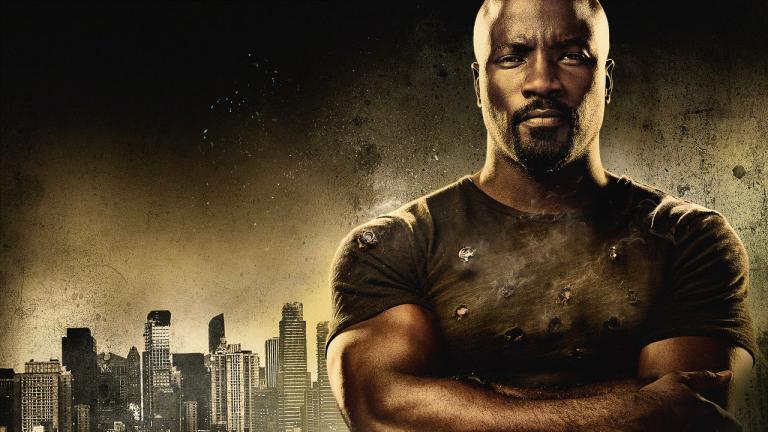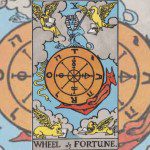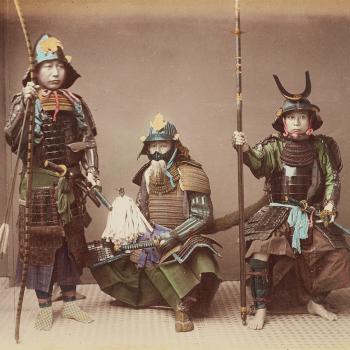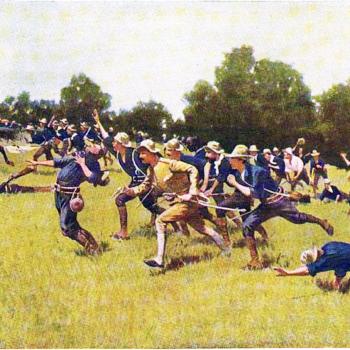While I have a shelf of graphic novels, I’m not a huge comic book geek. And what there is of my comic geekdom is more DC than Marvel — blame Neil Gaiman, who was my gateway in and whose Sandman takes up most that shelf. So I haven’t gotten much into the Marvel cinematic ‘verse.
But I recently watched the first season of Marvel’s Luke Cage on Netflix and enjoyed it thoroughly. I had not seen the Jessica Jones series in which the character was first introduced, so my reflections here are based only the Cage series. (I have started watching the Jones series, and am finding its super-anti-heroism problematic so far — I may have more to say on that later.)
One of the reasons I gave Cage a try is because of a strange complaint raised on the net about there not being enough white people in the cast…of a show set in Harlem.
Now I’m a white kid from the suburbs. But I have been the only white guy in the room a couple of times, and understand that — shock! gasp! — sometimes black folks do things that don’t revolve around, or even involve, while folks.

And when I watched Cage what I found was more than a tale of a black superhero with crossover appeal. I found the universal hero, the one that Joseph Campbell famously assigned a thousand faces.
When we find that hero, we find something important:
Furthermore, we have not even to risk the adventure alone; for the heroes of all time have gone before us, the labyrinth is thoroughly known; we have only to follow the thread of the hero-path. And where we had thought to find an abomination, we shall find a god; where we had though to slay another, we shall slay ourselves; where we had thought to travel outward, we shall come to the center of our own existence; where we had thought to be alone, we shall be with all the world.[Campbell, 25]
While the on-going, open-ended serial format of comics and their derivatives is very different than that of classic epics, I think we may get some insights into the hero’s journey from trying to look at the first season — or at least the first few episodes, I’ll leave the rest for someone’s thesis — of Luke Cage’s story from the framework of Campbell’s monomyth — “the one, shape-shifting yet marvelously constant story that we find”[Campbell, 3] behind much of the world’s mythology.
The standard path of the mythological adventure of the hero is a magnification of the formula represented in the rites of passage: separation — initiation — return: which might be named the nuclear unit of the monomyth.
A hero ventures forth from the world of common day into a region of supernatural wonder: fabulous forces are there encountered a a decisive victory is won: the hero comes back from this mysterious adventure with the power to bestow boons on his fellow man.[Campbell, 30]
Now screenwriters do read books, and there are no shortage of writer’s guides to the monomyth out there. So it may be that whoever plotted out the arc for the season did so with Campbell’s schema in mind.
Cage’s story begins with a man sweeping the floor in a barber shop, finishing up his shift before heading to his other job as a dishwasher. We find out that he’s an ex-con who just wants to keep his head down and lead a quiet life. It would be hard to find something more “common day”.
But we see that he has extraordinary powers as we see him lift a washing machine as if it were weightless. When his friend — and father of his late wife — Pop suggests that he ought to use these powers to help others, Cage reiterates his desire to be left alone. We get the impression that this is a conversation the two have had many times before.
This gives us a whirlwind tour of the first two stages of Campbell’s Hero’s Journey, what he called “The Call to Adventure” and “The Refusal of the Call”:
The first stage of the mythological journey…signifies that destiny has summoned the hero and transferred his spiritual center of gravity from within the pale of his society to a zone unknown.
…
Often in real life, and not infrequently in the myths and popular tales, we encounter the dull case of the call unanswered; for it is always possible to turn the ear to other interests. Refusal of the summons converts the adventure into its negative. Walled in boredom, hard work, or “culture,” the subject loses the power of significant affirmative action and becomes a victim to be saved….Whatever house he builds, it will be a house of death…[Campbell 58-59]
Cage refuses the call to adventure. And by the end of the second episode, his house has indeed become a house of death, as Pop is killed while trying to save a young man who has gotten in to criminal dealings way over his head.
In a Campbell’s prototypical myth, the next stage would be “Supernatural Aid”. The fairy godmother or the wizard or the Jedi master appears to aid the hero, showing us that once the hero has made the resolute choice to answer the call, he will find “all the forces of the unconscious at his side.”[Campbell 72]
(On a side note, while Campbell uses the masculine here and most of the myths he refers to have a male hero, he does also cite the female hero as well. For a book published in 1949 to use the descent of Inanna as an example of the hero’s journey strikes me as progressive — even if another stage about worldly temptations is labeled “Woman as Temptress”.)
As for supernatural aid, as is common in comics that happened here before the story even started. We begin in medias res and get the origin story later. So after Pop’s death Cage goes right to The Crossing of the First Threshold. He has the determination to succeed in his quest and the universe has given him the tools to accomplish it; now the journey truly beings. Cage decides that enough is enough, and conducts a one-man raid on the heavily fortified treasury of the local crime boss and his corrupt politician sister.
But stepping onto the path has consequences. The crime boss figures out who has attacked him and that extraordinary measures are needed to deal with someone immune to bullets. So as Cage is settling matters with his landlady, the boss attacks the building with a rocket launcher. Cage just manages to shield his landlady, but both are buried alive in the rubble — leaving them in what Campbell called The Belly of the Whale, “the passage into the realm of night”[Campbell 36] in which “instead of conquering or conciliating the power of the threshold, [the hero] is swallowed into the unknown, and would appear to have died” [Campbell 90] But this is actually a womb from which there will be a rebirth. In the case of Cage’s tale, it is a time to pause and have a flashback to the origin story, to tell us how he came to receive the Supernatural Aid
When the hero is reborn from the belly-womb, it is onto the Road of Trials, where “[t]he hero is covertly aided by the advice, amulets, and secret agents of the supernatural” aid he encountered earlier. The ongoing exercise of those supernatural powers is the heart of the comic or television serial superhero genre. Each issue or episode is a new trial, or part of one, and a hero can go on with their trials for decades.
I will just briefly mention how we might see the police detective Cage becomes involved with, Misty Knight, as “Woman as the Temptress”; nurse Claire Temple, who rescues him when he is gravely wounded, as “The Meeting with the Goddess”; and his conflict with his half-brother as a form of “Atonement with the Father”.
In Luke Cage, the writers have given us a hero for the era of #BlackLivesMatter; this handsome and smooth-talking black hero wears a hoodie and listens to hip-hop and walks the streets of Harlem as its protector, while he is treated as a deadly enemy by heavily militarized police. But underneath the contemporary framing and concerns even a farm boy from Kansas ought to be able to recognize the universal nature of this hero’s journey.
References:
Campbell, Joseph. The Hero With A Thousand Faces. New York: MJF Books, 1949.
“Luke Cage season 1: Every episode title and synopsis”. Fansided. http://fansided.com/2016/09/30/luke-cage-season-1-episode-title-synopsis-list/
Marvel’s Luke Cage. Season 1. Netflix.
You can keep up with “The Zen Pagan” by subscribing via RSS or e-mail.
Have I mentioned my books lately? Why Buddha Touched the Earth or What Does It Mean For The Gods to Exist? make great gifts for the Zen Pagan on your list. Or please consider supporting this blog with a donation or purchase of merch — The Zen Pagan Merch-o-rama has t-shirts, mugs, posters and prints, and stickers designed by yours truly.
If you do Facebook, you might choose to join a group on “Zen Paganism” I’ve set up there. And don’t forget to “like” Patheos Pagan and/or The Zen Pagan over there, too.

















